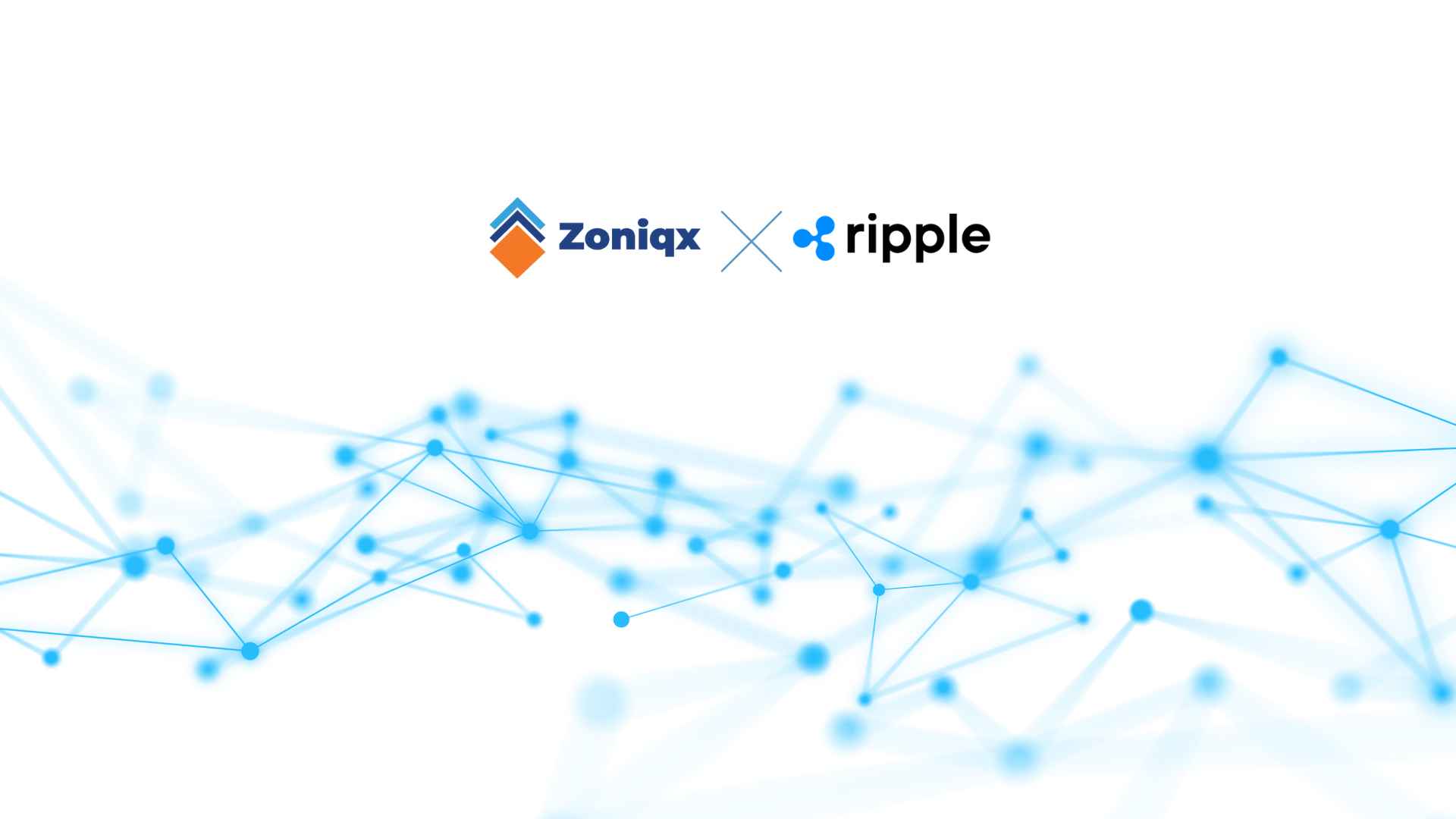Tokenized Private Equity
The tokenization of private equity is set to transform the investment landscape, creating new opportunities for asset management and trading on a global scale. As this innovative approach gains traction, key industry insights highlight its potential impact and growing acceptance:
- Market Potential: Forecasts predict that tokenized assets will reach an impressive $24 trillion by 2027, signaling a major shift in investment opportunities (Source: Kaleido).
- Investor Interest: Many fund managers consider private equity prime for tokenization, given its limitations in liquidity, transparency, and accessibility (Source: Bain & Company).
- Early Adoption: Private Equity and Hedge Funds are anticipated to be the most likely asset classes to undergo significant tokenization soon (Source: Bain & Company).
- Big Players Testing the Waters: Institutions like Citibank are already exploring tokenization through successful simulations, indicating potential for broader adoption (Source: Citigroup).
- Overall Growth: The global private equity market is expected to grow at a CAGR of 10.2% from 2022 to 2028, with tokenization likely playing a crucial role (Source: Antier Solutions).


This article will explore how the integration of tokenization can streamline private equity investments and detail the role of technology partners like Zoniqx in facilitating this shift.
- Introduction
- Understanding Private Equity Tokenization
- Benefits of Tokenizing Private Equity
- Regulatory Landscape
- Technical Aspects of Tokenization
- Steps to Tokenize Private Equity Funds
- Zoniqx: Your Partner in Tokenization
- Challenges and Mitigation Strategies
- Future Outlook
- Conclusion
1. Introduction
Overview of the Concept of Tokenization
Tokenization is the process of converting rights to an asset into a digital token on a blockchain. These tokens can represent part or whole of an asset, making it easier to buy, sell, and trade the asset on digital platforms. This process utilizes blockchain technology, known for its robust security and transparency, to ensure the integrity and traceability of transactions. In essence, tokenization converts the value stored in physical or intangible assets into a token that can be managed and transacted digitally.
Significance of Tokenization in the Private Equity Sector
In the private equity sector, tokenization brings transformative potential. Traditional private equity investments are often marked by high entry barriers, limited liquidity, and opaque operations. Tokenization addresses these issues by making shares in private equity funds more divisible, accessible, and transparent. This opens up investment opportunities to a wider audience, including smaller investors who were previously excluded due to high minimum investment requirements. Furthermore, the use of smart contracts automates various aspects of asset management, from the distribution of dividends to the enforcement of investor rights, streamlining operations and reducing costs. As a result, tokenization not only enhances the efficiency and attractiveness of private equity investments but also broadens the investor base, potentially increasing funding opportunities and liquidity in the market.
2. Understanding Private Equity Tokenization
Definition and Mechanics of Tokenizing Private Equity Funds
Tokenizing private equity involves converting the equity interests in funds or companies into digital tokens that can be traded on a blockchain platform. Each token represents a share of the equity, similar to how a stock represents ownership in a publicly-traded company. The mechanics of this process start with the creation of a digital representation of the equity on a blockchain — a secure and decentralized digital ledger. This is facilitated through the issuance of security tokens, which comply with regulatory standards and represent ownership, voting rights, or entitlement to a share of profits, just as traditional securities do.
The issuance of these tokens involves several steps, including the digitalization of the asset, creation of a smart contract (a self-executing contract with the terms of the agreement directly written into code), and the distribution of tokens to investors through a security token offering (STO). These tokens can then be traded on secondary markets, providing liquidity and enabling easier access for a range of investors.
Key Differences Between Traditional and Tokenized Private Equity
The primary differences between traditional private equity and tokenized private equity revolve around accessibility, liquidity, and transparency:
- Accessibility: Traditional private equity investments typically require significant capital, limiting access to institutional investors or very wealthy individuals. Tokenization lowers these barriers by allowing for fractional ownership, meaning investors can purchase smaller, more affordable portions of equity tokens.
- Liquidity: Private equity is known for its illiquidity, as investments are usually locked up for several years. Tokenization introduces liquidity through secondary markets for trading tokens, allowing investors to buy and sell shares more freely and potentially exit investments more quickly.
- Transparency: Traditional private equity can sometimes be opaque, with limited information on ongoing operations and performance available to investors. Blockchain technology enhances transparency by providing a tamper-proof, real-time ledger of all transactions and changes in ownership. This not only builds trust but also allows investors to better monitor their investments.
Overall, tokenizing private equity transforms the sector by democratizing access, enhancing liquidity, and improving transparency, which can lead to a more vibrant and dynamic market.
3. Benefits of Tokenizing Private Equity
- Access to a Broader Investor Base
Tokenization dramatically broadens the investor base for private equity funds. By enabling fractional ownership, tokenization reduces the minimum investment thresholds, making it feasible for smaller investors to participate in opportunities that were traditionally reserved for high-net-worth individuals or institutional investors. This inclusivity not only diversifies the investor pool but also increases the potential capital available to private equity funds. With a broader range of investors from various backgrounds, funds can leverage a wider network, enhancing the potential for varied investments and innovations.
- Enhanced Liquidity of Private Equity Investments
One of the most significant benefits of tokenization in private equity is the enhanced liquidity it offers. Private equity investments are typically illiquid, with capital locked in for long periods (often several years). Tokenization allows these equity shares to be traded on secondary markets, similar to stocks. This means investors can buy and sell their tokens more freely, providing a much-needed liquidity option that was previously unavailable in traditional private equity settings. Enhanced liquidity makes private equity more attractive and accessible, potentially increasing demand and value over time.
- Improved Efficiency Through Automated Processes and Reduced Costs
Tokenization can streamline many of the cumbersome and costly processes associated with private equity management. By utilizing smart contracts on blockchain platforms, many operations such as dividend distribution, cap table management, and investor updates can be automated. Smart contracts execute automatically based on pre-set rules and conditions, reducing the need for manual intervention and minimizing the risk of errors. This automation not only speeds up transactions but also significantly reduces administrative costs, as less human oversight is required. Additionally, the inherent transparency and security of blockchain technology reduce fraud and ensure that all transactions are accurately and permanently recorded, further decreasing operational risks and costs.
Together, these benefits showcase how tokenization can transform private equity by making it more accessible, liquid, and efficient, ultimately leading to a more dynamic and inclusive market.
Regulatory Landscape
Overview of the Legal Framework Governing Tokenized Securities
The regulatory framework for tokenized securities is an evolving area, influenced by both the rapid development of blockchain technology and the traditional legal structures that govern securities. In many jurisdictions, tokenized securities are treated similarly to conventional securities, which means they must comply with the respective securities laws and regulations. These regulations are designed to protect investors, ensure market transparency, and prevent fraud.
Key regulatory bodies like the U.S. Securities and Exchange Commission (SEC), the Financial Conduct Authority (FCA) in the UK, and the European Securities and Markets Authority (ESMA) in the EU have begun to outline specific guidelines for tokenized securities. These guidelines often address the issuance, trading, and management of security tokens and stipulate the need for issuers to register with the relevant authorities unless a valid exemption applies. The legal framework also covers aspects such as investor eligibility, disclosure requirements, and the responsibilities of all parties involved in the issuance and management of tokens.
Compliance Challenges and How to Navigate Them
Navigating the compliance landscape of tokenized securities presents several challenges:
- Jurisdictional Variance: Laws and regulations can vary significantly from one jurisdiction to another, making it complex for issuers who want to attract international investors. Companies must ensure compliance with local laws in each market where the tokens are offered, which can involve intricate legal work and consultation with regulatory experts.
- Lack of Standardization: As the regulatory framework for tokenization is still developing, there is a lack of standardization across different regions. This can create confusion and increase the risk of non-compliance. Staying updated with regulatory changes and engaging with regulatory bodies can help navigate this uncertainty.
- KYC and AML Compliance: Know Your Customer (KYC) and Anti-Money Laundering (AML) regulations are crucial in the issuance and trading of tokenized securities. Compliance requires robust systems to verify and maintain records of investor identities, their source of funds, and their transaction histories. Implementing effective KYC/AML processes is essential for preventing financial crimes and ensuring regulatory compliance.
- Technological Integration: Ensuring that the technology used for tokenization complies with legal requirements is another challenge. This includes ensuring that the blockchain platform and smart contracts used for issuing and managing tokens are secure, reliable, and capable of enforcing the legal terms embedded within them.
To successfully navigate these challenges, companies should consider working closely with legal experts specialized in blockchain and securities law. Additionally, proactive engagement with regulatory bodies to understand and influence policy developments can be beneficial. Establishing clear and transparent communication channels with investors about the regulatory status of tokens and any associated risks is also crucial for compliance and trust-building.
Technical Aspects of Tokenization
- Choosing the Right Blockchain Technology
Selecting the appropriate blockchain technology is crucial for successful tokenization. Key considerations include:
- Scalability: Ensuring the blockchain can handle large volumes of transactions.
- Security: Prioritizing platforms known for robust security features.
- Regulatory Compliance: Choosing platforms that facilitate compliance with local and international laws.
- Transaction Speed and Cost: Opting for blockchains that offer quick and cost-effective transactions.
- Example: Zoniqx uses Ethereum for its advanced smart contract capabilities and Ripple for fast, low-cost transactions, tailored to meet the specific needs of their diverse client base.
- Role of Smart Contracts in Managing Tokenized Assets
Smart contracts automate critical aspects of tokenization, including:
- Token Issuance: Automatically issuing tokens according to regulatory and client-specific criteria.
- Dividend Distribution: Ensuring dividends are distributed to token holders in a timely and transparent manner.
- Compliance Enforcement: Maintaining regulatory compliance through coded rules and procedures.
- Zoniqx Integration: Zoniqx’s TALM framework utilizes smart contracts to manage the entire lifecycle of tokenized assets, ensuring all operations from issuance to trading are automated and secure.
- Security Considerations
Maintaining high security standards is essential, with practices such as:
- Smart Contract Audits: Regularly auditing the code to prevent vulnerabilities.
- Encryption: Using strong encryption methods to protect data integrity and privacy.
- Multi-Signature Wallets: Requiring multiple approvals to enhance security for transaction validations.
- Zoniqx’s Approach: Employing advanced encryption and multi-signature wallets to ensure robust security measures, thereby enhancing investor confidence in the safety and reliability of the tokenization process.
By incorporating these elements, organizations can effectively manage the technical demands of tokenizing assets while ensuring scalability, security, and regulatory compliance. Zoniqx’s strategic use of blockchain technology exemplifies how thoughtful integration of these elements can lead to successful and secure tokenization initiatives.
Steps to Tokenize a Private Equity Fund
- Preparation: Assessment and Strategic Planning
Tokenizing a private equity fund begins with thorough preparation and strategic planning. This step involves:
- Market Analysis: Understanding the market demand and potential investor interest in tokenized products.
- Legal and Regulatory Review: Assessing the legal framework and compliance requirements in different jurisdictions.
- Technology Assessment: Evaluating the necessary technological infrastructure to support tokenization.
- Strategic Objectives: Setting clear goals for what the fund aims to achieve with tokenization, such as increased liquidity, broader investor base, or improved operational efficiency.
- Zoniqx’s Role: Assisting clients with strategic planning and readiness assessments to ensure all aspects are considered and addressed before launching a tokenization project.
- Partnership with Technology Providers
Choosing the right technology partner is critical to the success of tokenization. This phase includes:
- Selection Criteria: Identifying technology providers that can offer scalable, secure, and compliant solutions.
- Integration: Working closely with the selected provider to integrate their technology with existing systems.
- Customization: Tailoring the technology to meet the specific needs of the private equity fund, ensuring functionality aligns with investment and operational strategies.
- Zoniqx’s Expertise: Offering robust Tokenized Asset Lifecycle Management (TALM) solutions that can be customized and integrated into clients’ existing operations seamlessly.
- Token Creation and Distribution
After the groundwork is laid, the next step is creating and distributing the tokens. Key actions include:
- Token Design: Defining the characteristics of the token, such as its type (security, utility, etc.), features, rights, and obligations attached to it.
- Smart Contract Development: Creating the smart contracts that will automate the issuance, transfer, and management of the tokens.
- Token Issuance: Launching the tokens through an initial offering, either privately to selected investors or publicly through various distribution channels.
- Zoniqx’s Support: Leveraging Zoniqx’s TPaaS to ensure secure and compliant token issuance and management throughout the distribution phase.
- Investor Onboarding and KYC/AML Compliance
The final step involves onboarding investors and ensuring compliance with KYC (Know Your Customer) and AML (Anti-Money Laundering) regulations. This includes:
- Investor Verification: Conducting thorough checks to verify the identity of investors and assess their eligibility.
- Compliance Checks: Ensuring all transactions comply with local and international AML regulations.
- Investor Education: Educating investors on how to manage and trade their tokens, and the rights and responsibilities they entail.
- Zoniqx’s Integration: Utilizing Zoniqx’s platforms like SecureConnect for efficient investor onboarding and compliance, ensuring a smooth transition for investors into the world of tokenized assets.
By systematically following these steps and leveraging Zoniqx’s expertise and technological solutions, private equity funds can effectively tokenize their assets, achieving enhanced liquidity, expanded investor access, and improved operational efficiencies.
Zoniqx: Your Partner in Tokenization
- Introduction to Zoniqx and its Capabilities in Asset Tokenization
Zoniqx stands as a leading figure in the digital transformation of asset management, specializing in the tokenization of private equity and other real-world assets. With its innovative Tokenized Asset Lifecycle Management (TALM) framework, Zoniqx offers a comprehensive solution that encompasses the entire digital lifecycle of an asset — from primary issuance and distribution to tradability and on-chain finance. This approach not only simplifies the tokenization process but also ensures that it is secure, compliant, and efficient. Zoniqx’s proprietary technology, including the Dynamic Compliant Interoperable Security Token (DyCIST) protocol, provides unparalleled flexibility and cross-chain capability, meeting the diverse needs of its global clientele.
- How Zoniqx Facilitates the Tokenization Process for Private Equity
Zoniqx’s role in facilitating the tokenization of private equity is multifaceted, focusing on providing end-to-end solutions that are tailored to the specific requirements of each client. Here’s how Zoniqx supports the tokenization journey:
- Strategic Planning and Assessment: Zoniqx works closely with clients to assess their needs and develop a strategic plan that aligns with their financial and operational goals.
- Technology Provision: Leveraging its advanced TALM framework, Zoniqx provides the technological backbone necessary for the secure and efficient tokenization of assets.
- Regulatory Compliance: Understanding the importance of compliance, Zoniqx ensures that all tokenization activities are in line with current regulations, employing its DyCIST protocol to manage and adapt to regulatory requirements dynamically.
- Investor Onboarding: Through platforms like SecureConnect, Zoniqx streamlines the process of investor verification and onboarding, integrating essential KYC and AML checks to maintain high standards of security and compliance.
- Success Stories and Case Studies of Partnerships
Zoniqx’s impact on the market can be seen through its numerous successful partnerships and projects. Here are a few highlights:
- Enterprise-Level Tokenization: A notable partnership involved working with a large asset management firm to tokenize over $1 billion in real estate assets. The project not only democratized access to real estate investments but also enhanced liquidity and market efficiency.
- Innovation in Hedge Funds: Zoniqx collaborated with a hedge fund to tokenize its portfolio, enabling finer asset segmentation and opening up investment opportunities to a broader range of investors. This move significantly increased the fund’s market reach and investment inflow.
- Strategic Partnerships with Financial Institutions: By partnering with traditional financial institutions, Zoniqx has facilitated the entry of conventional investors into the blockchain space, enhancing the liquidity and stability of the tokenization market.
These case studies illustrate Zoniqx’s capability to transform asset management through tokenization, proving its leadership in the field and commitment to innovation and client satisfaction. As your partner in tokenization, Zoniqx is dedicated to leveraging its expertise and cutting-edge technology to achieve your investment objectives and propel your assets into the digital age.
Challenges and Mitigation Strategies
Common Hurdles in Tokenizing Private Equity Funds
Tokenizing private equity involves several challenges that can complicate the process and deter its successful implementation. Some of the most common hurdles include:
- Regulatory Compliance: Navigating the complex web of global and local regulations that govern tokenized securities can be daunting. Compliance issues vary by jurisdiction and can significantly impact the feasibility and structure of token offerings.
- Technological Complexity: Implementing blockchain technology and integrating it with existing financial systems presents technical challenges. These include issues with scalability, interoperability, and the security of blockchain platforms.
- Market Acceptance: Despite the growing interest in blockchain and tokenization, there remains a degree of skepticism and lack of understanding among traditional investors and stakeholders in the private equity sector.
- Liquidity Concerns: While tokenization aims to increase liquidity, the actual liquidity of tokenized assets can depend heavily on the development of secondary markets and the regulatory environment that governs them.
- Data Privacy and Security: Ensuring the privacy and security of sensitive financial data in a blockchain environment, where data is inherently transparent and decentralized, poses significant concerns.
Solutions to Overcome These Challenges
To address these hurdles effectively, several strategic solutions can be employed:
- Robust Legal Framework: Engaging with legal experts who specialize in securities law and blockchain technology is crucial. This ensures that all aspects of token issuance comply with regulatory requirements. Zoniqx, with its expertise in navigating complex regulatory landscapes, assists clients in aligning their tokenization projects with current laws and regulations.
- Advanced Blockchain Solutions: Opting for blockchain platforms that offer high scalability, enhanced security features, and cross-chain interoperability is essential. Zoniqx’s TALM framework, built on versatile platforms like Ethereum and Ripple, addresses these needs by providing a robust infrastructure that is adaptable to various asset classes and investment structures.
- Educational Initiatives: To foster market acceptance, it is vital to educate potential investors and partners about the benefits and workings of tokenized assets. Zoniqx undertakes comprehensive educational and outreach programs to demystify tokenization for traditional investors, thereby enhancing market trust and engagement.
- Developing Secondary Markets: Actively participating in the development and regulation of secondary markets is critical for ensuring liquidity. Zoniqx collaborates with regulatory bodies and financial institutions to support the creation of legal and efficient trading platforms for tokenized securities.
- Enhanced Security Measures: Implementing state-of-the-art security measures, including encryption, multi-signature wallets, and regular security audits, helps protect data and assets. Zoniqx leverages these technologies to ensure the highest standards of data privacy and security for all tokenization projects.
By addressing these challenges with strategic mitigation strategies, Zoniqx helps clients navigate the complexities of tokenizing private equity funds, ensuring a smooth and compliant transition to innovative digital asset management solutions.
Future Outlook
Trends and Future Developments in Private Equity Tokenization
The landscape of private equity is rapidly evolving with the adoption of tokenization technologies. Looking ahead, several key trends are poised to shape the future of this sector:
- Increased Regulatory Clarity: As governments and financial authorities become more familiar with blockchain technologies, clearer and more supportive regulations are expected to emerge. This will likely boost investor confidence and facilitate broader adoption of tokenization.
- Growth of Secondary Markets: Enhanced liquidity is a major promise of tokenization, and as secondary markets for tokenized assets mature, this liquidity is expected to increase, making private equity investments more attractive to a wider audience.
- Integration with Traditional Finance: Tokenization will continue to integrate more deeply with traditional financial systems, enabling a hybrid ecosystem where digital and traditional assets coexist and complement each other.
- Advancements in Blockchain Technology: Innovations in blockchain technology will continue to improve the scalability, efficiency, and security of tokenized assets, broadening their appeal and utility.
Zoniqx’s Role in Shaping the Future of Tokenized Private Equity
Zoniqx is at the forefront of these developments, driving innovation and adoption in the tokenization of private equity. With its comprehensive TALM (Tokenized Asset Lifecycle Management) framework and expertise in regulatory compliance and technology, Zoniqx is well-positioned to lead the market towards more sophisticated and mainstream tokenization solutions. By continuously enhancing its platforms and services, Zoniqx aims to bridge the gap between traditional asset management and the digital asset economy, empowering clients to leverage the benefits of blockchain technology.
Conclusion
Summary of the Tokenization Process and Its Benefits
The tokenization process transforms private equity by making it more accessible, liquid, and efficient. Through the strategic use of blockchain technology and smart contracts, tokenization offers a way to democratize access to investment opportunities, enhance liquidity through secondary markets, and streamline operations with automated processes. This leads to cost savings, increased transparency, and broader investment and growth opportunities.
Partnering with Zoniqx for Successful Tokenization Projects
For asset managers and investors looking to navigate the complexities of tokenization and harness its potential, partnering with Zoniqx offers a strategic advantage. Zoniqx’s end-to-end solutions and expert guidance ensure that clients can confidently and successfully implement tokenization projects. Whether you are looking to tokenize a private equity fund or explore other asset classes, Zoniqx provides the infrastructure, expertise, and support needed to achieve your objectives.
To explore how Zoniqx can transform your asset management strategy through tokenization, contact us today to book a demo or discuss your specific needs. Join us in shaping the future of investment and unlocking the full potential of your assets in the digital age.



